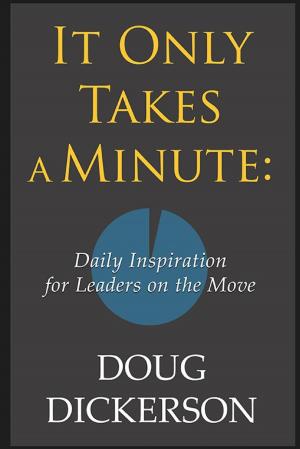Integrated Health
Heartpath Practitioner Assessment and Intervention for the Trauma-Exposed Patient
Nonfiction, Health & Well Being, Medical, Specialties, Healing, Patient Care, Health, Alternative & Holistic Health, Holism| Author: | Bill McFeature, Cinthia Herron-McFeature | ISBN: | 9781628653885 |
| Publisher: | Motivational Press | Publication: | February 8, 2017 |
| Imprint: | Motivational Press | Language: | English |
| Author: | Bill McFeature, Cinthia Herron-McFeature |
| ISBN: | 9781628653885 |
| Publisher: | Motivational Press |
| Publication: | February 8, 2017 |
| Imprint: | Motivational Press |
| Language: | English |
Readers an awareness that trauma is pervasive, and without proper assessment and early intervention, through appropriate and coordinated treatment, trauma will continue to cause pandemonium in the lives of so many children and families. Looking at the collective trauma of our age, and the much-discussed pain suffered, we can be agents of transformation once we know how to integrate care for individuals and the healthcare field. As healthcare providers, social workers or other caring professionals, we should ask ourselves, “What can I do to promote healing for this patient/client?” Integrated Health shares with readers There is a new paradigm of healthcare and wellness that is qualitatively different in the approach to the interaction of the mind, body, and environment. When it comes to the well-being of the trauma-exposed patient, this is especially true, by examining the impact which trauma caused to the physical body, mental health, emotional health, and spiritual belief system. In fact, research has revealed that traumatic exposure and PTSD are linked to poor physical health with greater utilization of medical care, i.e., primary care, and overall higher morbidity (Taft et al., 1999). Several investigations and ongoing research have revealed connections with lifetime trauma history, or complex trauma, and specific medical diagnoses, even years after trauma occurred.
Readers an awareness that trauma is pervasive, and without proper assessment and early intervention, through appropriate and coordinated treatment, trauma will continue to cause pandemonium in the lives of so many children and families. Looking at the collective trauma of our age, and the much-discussed pain suffered, we can be agents of transformation once we know how to integrate care for individuals and the healthcare field. As healthcare providers, social workers or other caring professionals, we should ask ourselves, “What can I do to promote healing for this patient/client?” Integrated Health shares with readers There is a new paradigm of healthcare and wellness that is qualitatively different in the approach to the interaction of the mind, body, and environment. When it comes to the well-being of the trauma-exposed patient, this is especially true, by examining the impact which trauma caused to the physical body, mental health, emotional health, and spiritual belief system. In fact, research has revealed that traumatic exposure and PTSD are linked to poor physical health with greater utilization of medical care, i.e., primary care, and overall higher morbidity (Taft et al., 1999). Several investigations and ongoing research have revealed connections with lifetime trauma history, or complex trauma, and specific medical diagnoses, even years after trauma occurred.















